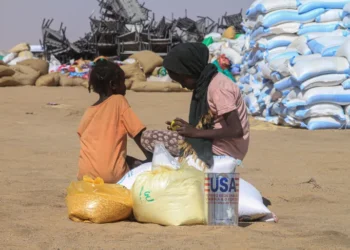Major multilateral development banks’ (MDBs) climate financing rose to $66 billion last year from $61.6 billion in 2019, according to the 2020 Joint Report on Multilateral Development Banks’ Climate Finance, published today, June 30, 2021. Out of this amount, $38 billion, representing 58% was committed to low- and middle-income economies.
Meanwhile, the total climate co-finance committed during 2020 alongside MDB resources was $85 billion. This means that cumulatively, MDB climate finance and climate co-finance totalled more than $151 billion. Also, the amount of private direct mobilisation stood at $5.9 billion.
Also, of the 2020 total of $66 billion, $63 billion came from the MDBs’ own accounts and almost $3 billion from external resources channeled through and managed by MDBs. These included the Climate Investment Funds (CIF), Green Climate Fund (GCF) and climate-related funds under the Global Environment Facility (GEF), EU blending facilities and others.
A key element of the MDBs’ effort to fight climate change is accelerating the transition to low-carbon and climate-resilient economies through climate finance. This is in line with the objectives of the 2015 Paris Agreement to keep global warming well below 2°C, with efforts to limit it to 1.5°C, along climate-resilient development pathways.
Commitment in the past 6 years
In the past six years, the MDBs have jointly committed a total of $257 billion in climate finance, of which $186 billion was directed at low- and middle-income economies.
The annual report is a key indicator on the progress MDBs are making on accelerating the delivery of climate finance. This is because demand is clearly going to grow over time. This year’s report marks the end of the reporting period tracking individual climate finance pledges since 2015, 2021 will mark the start of a new increase in ambition.
In 2019, at the UN Secretary-General’s Climate Action Summit, MDBs announced their expected joint annual climate action finance to 2025. These include at least $65 billion, with $50 billion of MDB climate finance for low-income and middle-income countries.
“The MDBs will continue to improve their tracking and reporting of climate finance in the context of their commitments to ensure consistent financial flows to the countries’ long-term, low-carbon and climate-resilient development pathways, as established in Article 2.1 of the Paris Agreement”, says the 2020 report.
AfDB’s share of climate change related investments
Meanwhile, the African Development Bank’s share of climate change related investments has increased four-fold from 2016 to 2019. It is expected to reach 40% of the Bank’s total investment at the end of 2021.
“We are on track to mobilize the target of $25 billion between 2020 and 2025 to support investments that address climate change and promote green growth” .
Mr. Al-Hamndou Dorsouma, Officer-In-Charge Director of Climate Change and Green Growth at the AfDB
The 2020 financing helped play a key role in supporting countries to embed green and climate-focused solutions as part of their recoveries from the impact of COVID-19. These affected MDBs’ normal lending operations and thus the delivery of their climate finance targets.
MDBs fight against COVID-19
The 2020 report says interventions and support from the MDBs laid a solid foundation for “building back better” for a greener, more resilient, post-COVID-19 future.
The report further highlights that nearly $50 billion (76 percent) of total MDB climate finance in 2020 was associated with climate change mitigation investments. Such investments aim to reduce harmful greenhouse gas emissions and slow down global warming. Of this, 50 percent went to low- and middle-income economies.
Additionally, more than $16 billion (24 percent) for climate change adaptation finance was invested in adaptation efforts to help countries build resilience to the mounting impacts of climate change. These include worsening droughts and more extreme weather events, from flooding to rising sea levels. Of this, 83% was directed to low- and middle-income economies.
READ ALSO: Eco Bank Group Named 2021 African SME Bank of the Year






















